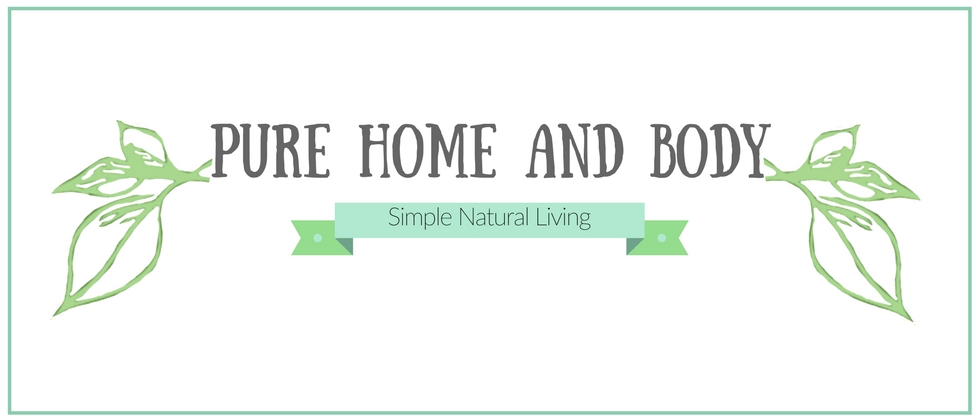This information is for educational purposes only and not intended to diagnose, treat or cure any disease. If you need medical care, see a doctor.
There are three basic elements to healthy immune function
- Control inflammation (best done under the care of a medical doctor)
- Keep the immune system running at it’s best
- Boost your immune system when you’re run down
If you take care of your immune system, you’ll lessen the chances that it will be thrown out of balance either into an over-active, inflammatory mode, or in a weakened state where you are vulnerable to catching every bug that comes by.
There are some simple principles that are common knowledge in the medical and holistic health communities that can fit into everyday living to keep all of us healthy. My first article in this series addressed one of these. If your body is already in a state of inflammation and you work to boost your immune system, you could be exacerbating the problem.
Ask your doctor if you should you keep the immune system from over-reacting whether from a virus, bacteria or allergic reaction. Autoimmune disease occurs when the body’s natural inflammatory response goes into overdrive and begins to attack healthy cells. The problem arises when our bodies fall into a cycle of chronic inflammation and drug use to control the symptoms when the body doesn’t adjust to a healthier lifestyle. All that said, there are some simple things you can do everyday to support a healthy immune system. A healthy immune system was designed to ward off the tiny battles of daily living.
This is not Rocket Science These 9 principles will help keep all your body systems working their best, including support of healthy immune function. Sometimes we spend more time looking for answers that are complicated, when we really have everything we already need. I realize that you probably know about many of these, but often it helps to hear it again from another perspective. Becoming healthy really is a process, isn’t it? So, take the wisdom you need for right now and work on creating those new healthy habits before you get sick. If you are struggling with a chronic immune disorder, talk with your doctor to see if it may be suitable to add these strategies to your daily routine.
1. Get rid of the chemicals in your home Your body’s immune system is designed to attack anything foreign in the body and protect itself. Every time your body is exposed to chemicals (in household cleaners, personal care products and drugs), it may cause your immune system to respond. Our bodies produce Cortisol to deal with moments of stress, ongoing production of coritsol, however can be harmful to our body. When viruses and bacteria enter your body, it’s defenses may be overstimulated. If you are not sure what chemicals are good or bad, it’s time to identify toxins in your home.
2. You are what you eat Traditionally grown produce with pesticides and processed, packaged foods may cause stress on the body. Check out EWG’s Dirty Dozen & Clean 15 food lists to see what foods are worth buying organic and what traditional produce has low pesticide residue. Packaged foods carry little or no nutritional value and often contain harmful chemicals like MSG to artificially flavor and preserve ingredients. Processed foods and pesticides are foreign to your body. They kick your immune system into overdrive so it may become burned out when an immunity crisis really arises. If most of your diet is from a box, can or fast food lane, it’s time to re-evaluate and make time for preparing some whole-foods. It takes just as much time to pick up an apple as it does to reach for a bag of chips or candy bar. You’ll have more energy and you’ll have a healthy digestive system.
3. Research immunizations Have intelligent conversations with your medical doctor about steps to take with vaccinations. We have been conservative with vaccines in our family, partly because 2 people in our family had reactions to immunizations. That was more than 13 years ago before I knew about any controversy with shots. Immunizations are designed to stimulate the immune system. This is why doctors usually recommend skipping them if you have a cold or flu, it’s too much stress on your defenses. Vaccines bypass your body’s natural defenses and create an unnatural system for exposure to viruses and bacteria. Making the decision to use or avoid vaccines is a personal one. We did get our 14 year old immunized for a missions trip to India this past January. Polio is a common disease in India and it just wasn’t a risk we wanted to take in sending him there. Through that situation, though, I learned from a nurse that most vaccine reactions occur in children under six. If you want to learn more about how vaccines work in regard to the immune system, Tiffany Rowan has a great article you can check out.
4. Get enough Sleep If you are exhausted you put yourself at risk of illness including ongoing fatigue, depression, the flu and susceptibility to infection. Sometimes the side-effects of drugs are insomnia. Often, we have to weigh in the disadvantages, what is worse, having congestion or losing quality sleep from drugs? Lost sleep from any situation may put your immune system at risk. There are natural supplements that can support a restful nights sleep (Check out his choice here plus a Multi-green product) to support healthy immune function, and in his words “slept like a baby”.
If you lose some sleep a few nights, you have about 7 days to recover the loss, so take a nap when you can, go to bed early, or sleep in the week after you’ve missed sleep. Those energy drinks aren’t you any good, either, and they’re just masking your body’s natural signals to rest when you need it. Caffeine and stimulants are not only addicting, they train you to ignore your body’s natural rhythms. I’m not telling you to stop drinking your cup of java, like anything, keep it in moderation. If you find you need a pick-up mid afternoon or you have trouble falling asleep, it might be time to cut back and save the coffee for your morning ritual. If you need to kick the soda habit, trade it out for a healthier option like flavored sparkling water. You’ll satisfy your need for carbonation without chemicals, sugar and caffeine.
5. Stay hydrated All our body systems run best when they have enough water. Our body is about 60% water, the brain 70%. When you are dehydrated, all your body systems become inefficient. Water is a catalyst and triggers chemical reactions, including digestion, toxin removal and basic cell functions. The basic standard for everyday hydration is drinking half your body weight in ounces of water each day. Increase your fluids to compensate for sweating from exercise, hot weather and stress. Drink your water from glass and save the plastic water bottles for emergencies – make them the exception, not the norm.
6. Eat good food I’m not going to go into a lecture on nutrition, this is really simple and you most likely know what foods make you feel better and what makes you feel worse. Obviously, fruits and vegetables are best to eat, limit the amount of meats you eat. Eat whole grains if you can tolerate them (in moderation) and avoid processed foods. Food is fuel and will help your body manage stress so your immune system can run at it’s best. The best anti-stress vitamins and foods?
- Vitamin A helps the body manage stress. Found in pumpkin, sweet potatoes, carrots and cantaloupe.
- Vitamin C supports the adrenal function and has a direct effect on viruses and bacteria. Fresh orange juice, Ningxia wolfberries, kiwi and cantaloupe are the highest in Vitamin C.
- Vitamin E interacts with the A & C vitamins and selenium to support the body’s natural defenses. Best sources: almonds, raw blackberries and sunflower seeds.
- B-Vitamins keep you calm, cool and collected. Lack of B-vitamins will make you jittery and have difficulty concentrating. Best sources: Sesame seeds, sunflower seeds, chia seeds, avocado, yogurt and blackstrap molasses.
- Calcium- Magnesium in the correct combination assists the B-vitamins and supports healthy immune function. Deficiencies of magnesium are linked with many symptoms including irritability and nervousness: the last thing you need when you are under stressful conditions. Best calcium-magnesium sources? Blackstrap molasses, chia seeds, yogurt, sunflower seeds.

Here’s a nutrient dense Immune Building snack: mix a tablespoon of chia seeds into a cup of yogurt. While the seeds are softening, mix together some pumpkin seeds, sunflower seeds and chopped walnuts and sprinkle over your yogurt. Serve with a slice of cantaloupe and kiwi for a light, stress-free meal or snack. I also added Ningxia wolfberries and chopped dates to mine. Or, mix up a batch of No-Bake Pumpkin Seed Caramel Bars for healthy eating on the go.
Super Foods that help the body manage the stresses of everyday life: Pumpkin seeds, Chia seeds, Sunflower seeds, Cantaloupe, Yogurt, Walnuts, Sesame seeds, Blackstrap molasses
7. Keep your Plumbing clear Your digestive system is considered a second immune system that can be disrupted by overuse of anti-biotics. Your gut breaks down harmful bacteria (with good bacteria or “intestinal flora”, one of the most common is Acidopholus, but there are hundreds of strains of good bacteria in your gut) and gets rid of it through elimination. The healthiest schedule is elimination at least once a day, some experts recommend after each meal. The schedule makes sense, if you don’t visit the bathroom for a couple of days, that is 2-3 days of meals sitting there breaking down in your body. When your body holds on to toxins your immune system is compromised. Leaky gut syndrome is a situation where toxins continue to build up into the intestines and eventually “leak” outside the intestinal wall, contaminating the rest of your body with toxic debris, YUK. If you take anti-biotics, talk with your doctor about supplementing with a probiotic to replenish the good bacteria. Just make sure you don’t take the “probiotic” the same time as the anti-biotic (which will kill the good flora in your supplement). Need more help moving things along? Make sure you are staying hydrated (#5) and getting enough fiber in your diet (white refined, processed foods will most likely bind things up). Dried fruit, fresh fruit (#6) or a cup of warm water with fresh lemon squeezed in it can help most people.
8. Skip the chemical hand sanitizers We already know there are superbugs that have mutated from overuse of anti-biotics and chemical hand sanitizers. Your hands get just as clean from simple soap and water. If you use a hand sanitizer, make it one without harmful Triclosan (found to damage muscle tissue, including the heart). My choice is Immune Building Blend hand sanitizer which uses natural essential oils to kill bacteria. It’s not necessary to create a super sterile environment either, exposure to some natural “germs” found in dirt actually build up our immune system. Does this mean you should eat dirt? Not necessarily, but use common sense when exposed to germs and bacteria, wash hands before eating & food prep, and after exposure to bathroom germs and handling raw meat.
9. Take a deep breath and create a sense of calm Chronic stress is one of the most common suppressors of our immune system. Running yourself ragged will eventually catch up with you, often when you least expect it. If you find yourself suffering from any symptoms of a compromised immune system from stress: ongoing fatigue, repeated infections, allergies, slow wound healing, chronic diarrhea, thrush or recurring yeast infections, it’s time to evaluate your stress levels and talk with your doctor. 
Learn to say no to activities that will deplete you (or your children) from precious energy reserves. Over-scheduling is the easiest way to create a chronic state of stress where your immune system will eventually suffer.
I find this is one of the biggest challenges I face, with a busy family of six kids. This strategy is one I need to be attentive to every day. It’s easy to let days or weeks go by and not give your body the rest and calm it needs. That’s why I love my yoga practice, it’s scheduled time each week to practice techniques to relieve stress, let the body unwind and learn to listen to my body’s signals to rest when I need it.
Often, just re-configuring your schedule to allow some down time for relaxing, fueling your body, staying hydrated and rested can be enough to get your immune system back on track. Once you are stabilized and have a healthy immune system, make sure you don’t fall into old habits again that caused the stress on your immune system. If you are already practicing many good habits and you still become susceptible to a cold or flu bug, it might be time to support your defenses. Watch for my next article on Real, Natural Ways to Boost your Immune System.
Any surprises here? Which one do you need to work on most to keep y0ur immune system working well?













I enjoyed your article very much. I’m putting into practice what you’ve stated & love forward to improvement.